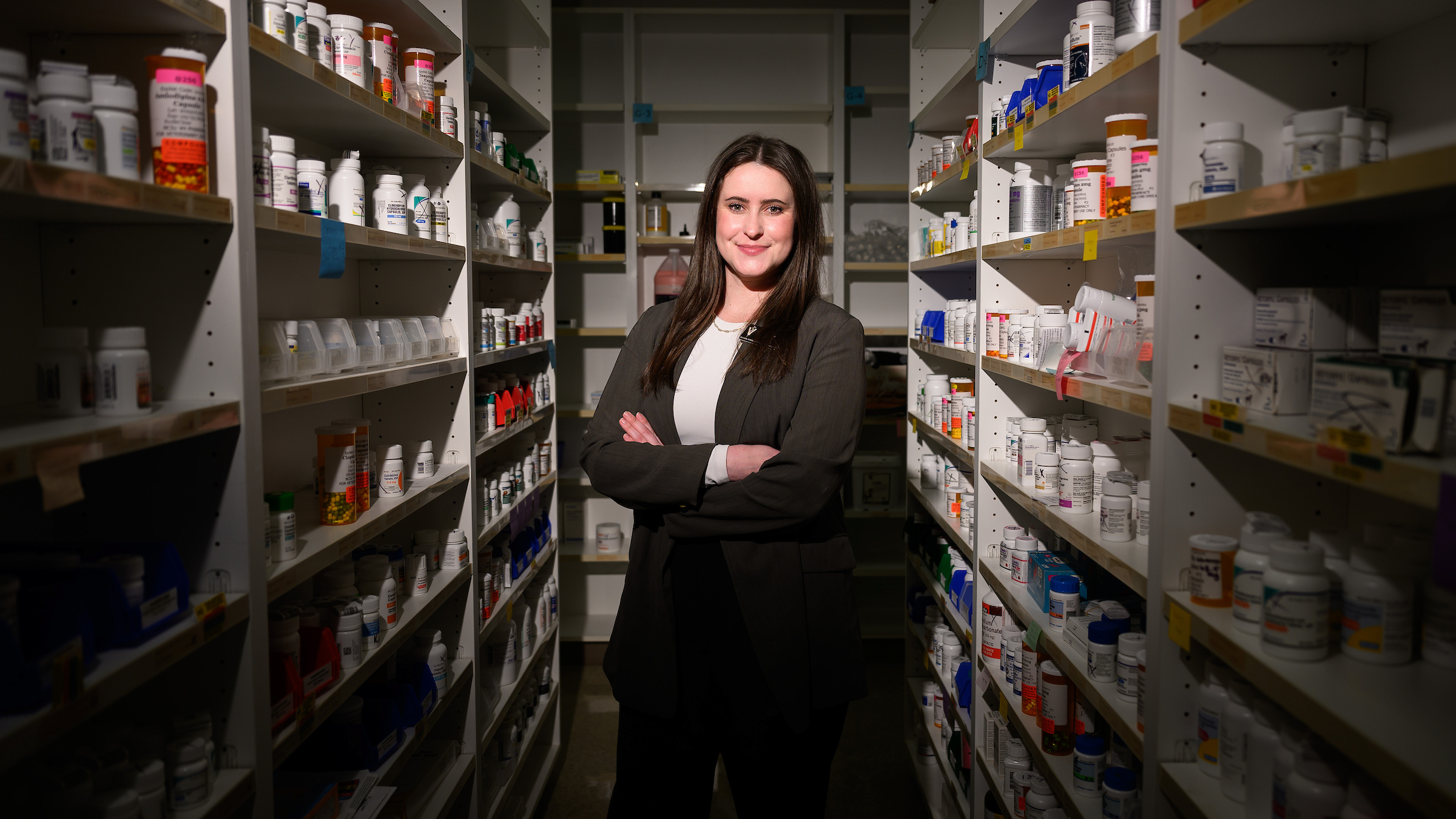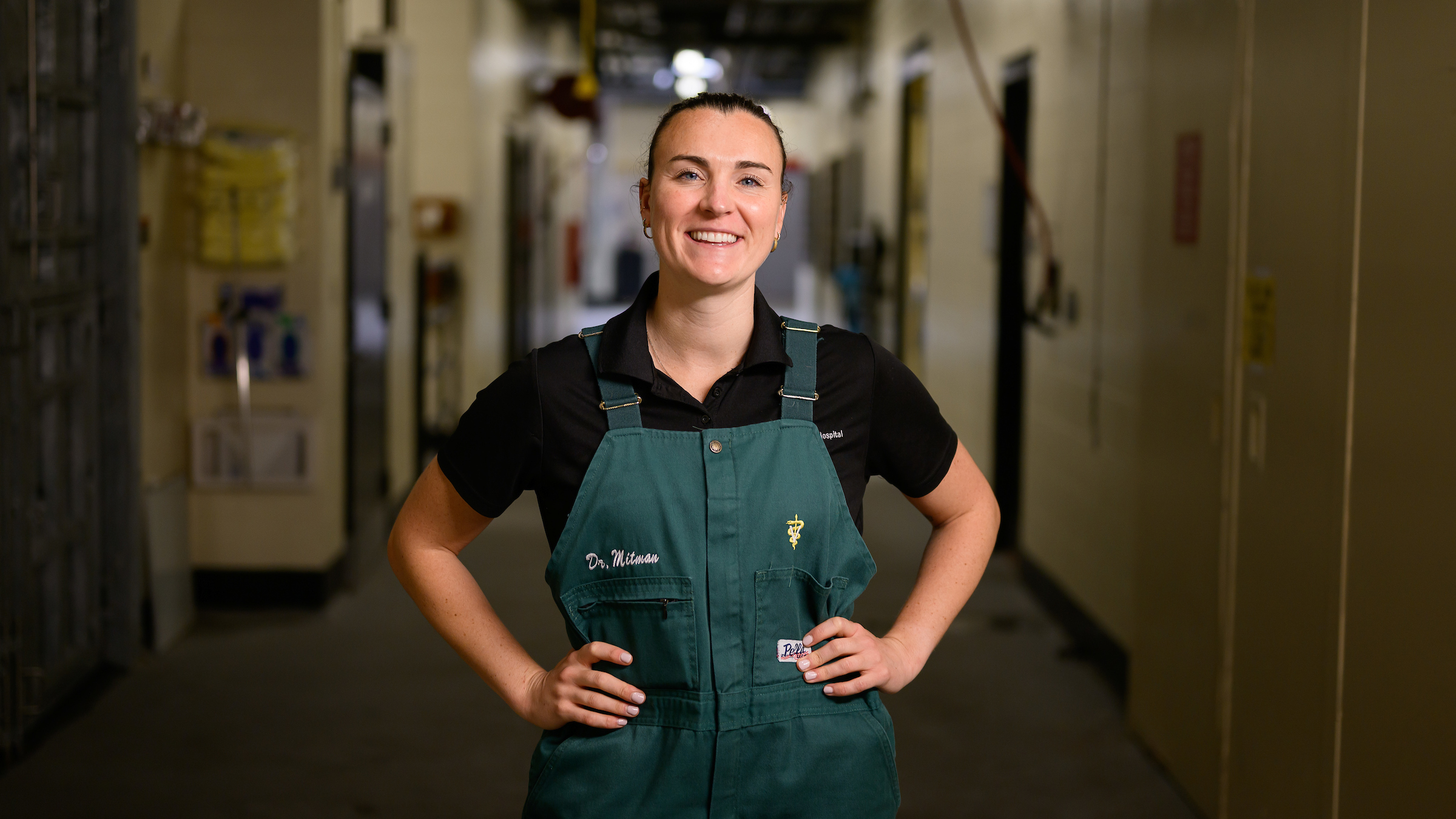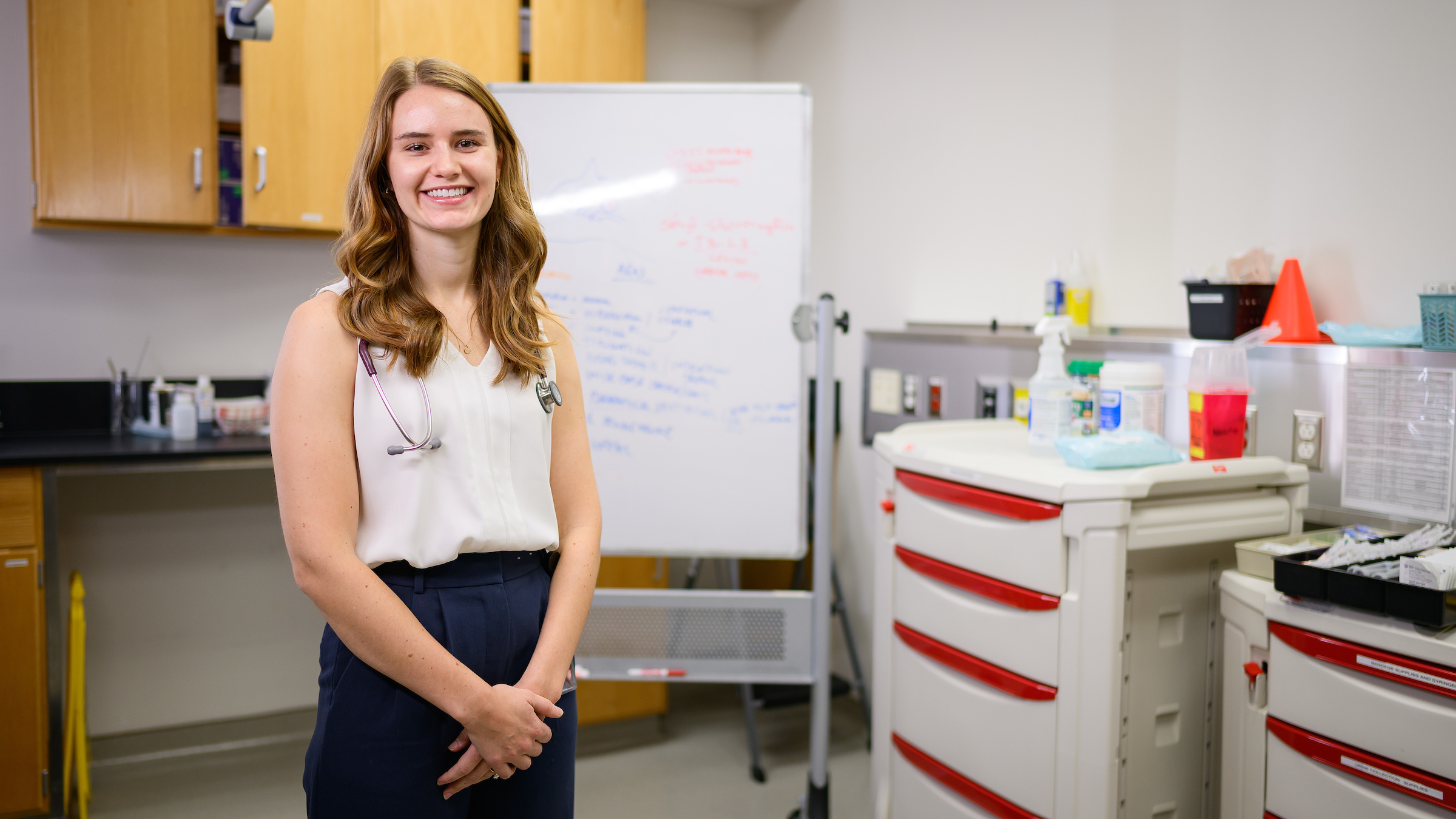House Officer Highlight: How NC State Helped One Dermatologist Become ‘Bien Dans Sa Peau’ (Comfortable in His Skin)
Originally from France, second-year dermatology resident Dr. Mickaël Pinto found a home away from home and a wealth of learning opportunities in the College of Veterinary Medicine community.
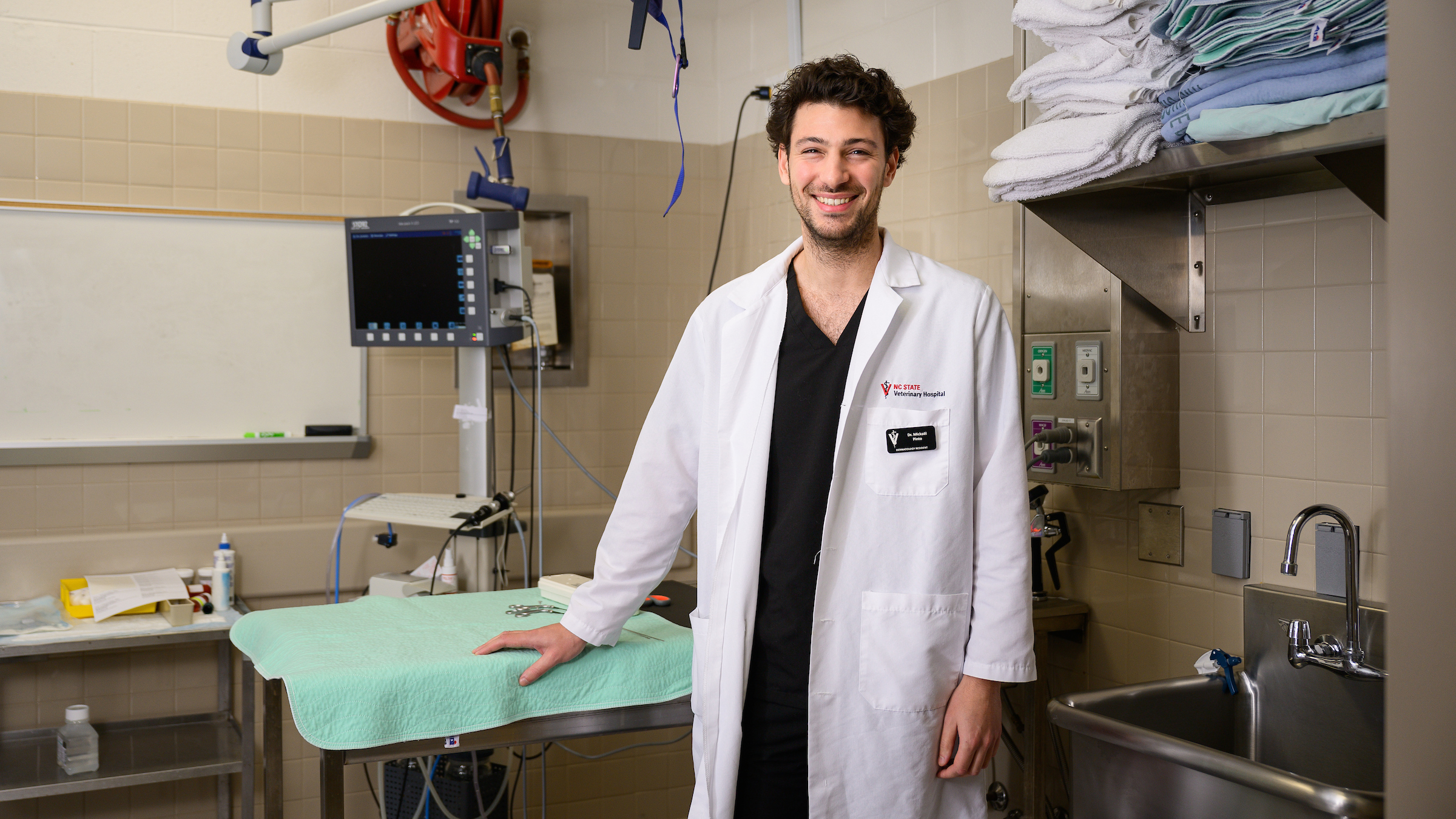
When Dr. Mickaël Pinto interviewed for a dermatology internship at NC State in fall 2021, the French veterinarian was delighted to learn how warmly the College of Veterinary Medicine welcomed international trainees.
In fact, the school’s built-in international support network was so robust that all of its dermatology faculty members, and most of the service’s house officers, hailed from countries outside the United States. Pinto met veterinarians from Slovakia, Germany, Canada and beyond as he learned about the NC State Veterinary Hospital and its training programs.
Once he started his internship in Raleigh the following summer, he discovered an even more personal global connection: Pinto and two other house officers, dentistry resident Dr. Loli Porcel Sánchez and equine internal medicine resident Dr. Javier Perez Quesada, had attended the same university in Spain.
These ties helped Pinto feel at home while 4,000 miles away from his hometown of Paris. The sociable second-year resident has since continued to build his network at NC State, bringing people together and proving dermatology goes beyond skin-deep.
“NC State is an amazing environment,” Pinto says. “We’re lucky to have dedicated people around who are passionate about what they do. This college is such a caring, encouraging and open-minded place.”
This sense of belonging has allowed Pinto to grow his clinical skills, bond with pet owners and explore his interests in immunology as he looks toward a career in academia.
Devoted to Dermatology
When American colleagues ask Pinto where he’s from, he uses the Eiffel Tower as a landmark — he grew up about 30 minutes’ walking distance away, in the heart of Paris.
During school breaks, his family would unwind from city life in the countryside of Normandy, France, where a young Pinto joined an equestrian club and enjoyed being around farm animals. He briefly considered becoming an equine veterinarian and even shadowed the clinician who worked with the club’s horses before realizing he preferred living and working in urban areas.
“I started to want to be a vet because I like people,” Pinto says. “I think it’s really a job about helping people. And you help the pets, of course, but you have to talk to the owners before you even take care of their dog.”
He studied biology at Pierre and Marie Curie University in Paris for a year before transferring to CEU Cardenal Herrera University in Valencia, Spain, in 2014 to earn a master’s degree in veterinary medicine — comparable to a DVM in the U.S. — over five years.
Pinto quickly adapted to speaking Spanish and living in a new environment. Learning complex medical information in a new language wasn’t as daunting as it might seem, he says, because he was so excited to be immersed in veterinary medicine.
The summer between his second and third year of veterinary school, he completed an externship in Paris that included a rotation with renowned veterinary dermatologist Dr. Pascal Prélaud. By the time Pinto’s dermatology lectures started the following semester, he had skin in the game.
“Skin is fascinating,” he says. “You can replace it, you can see what’s going on at its surface and it’s a big deal for people. I love derm because the dermatologists I met in France were so nice and willing to help me. I’m also passionate about immunology, microbiology and pharmaceuticals, and dermatology brings all of those things together.”

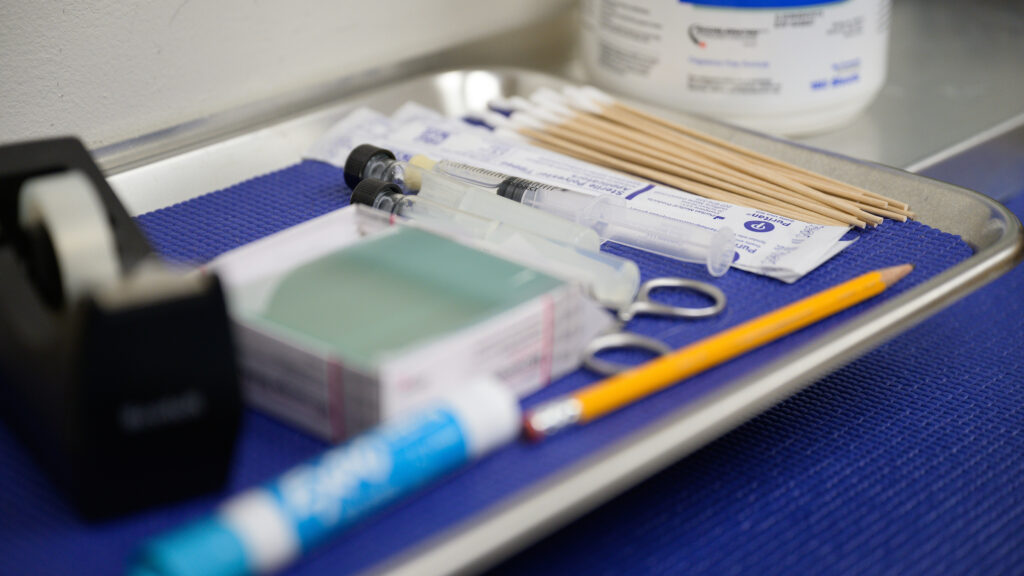
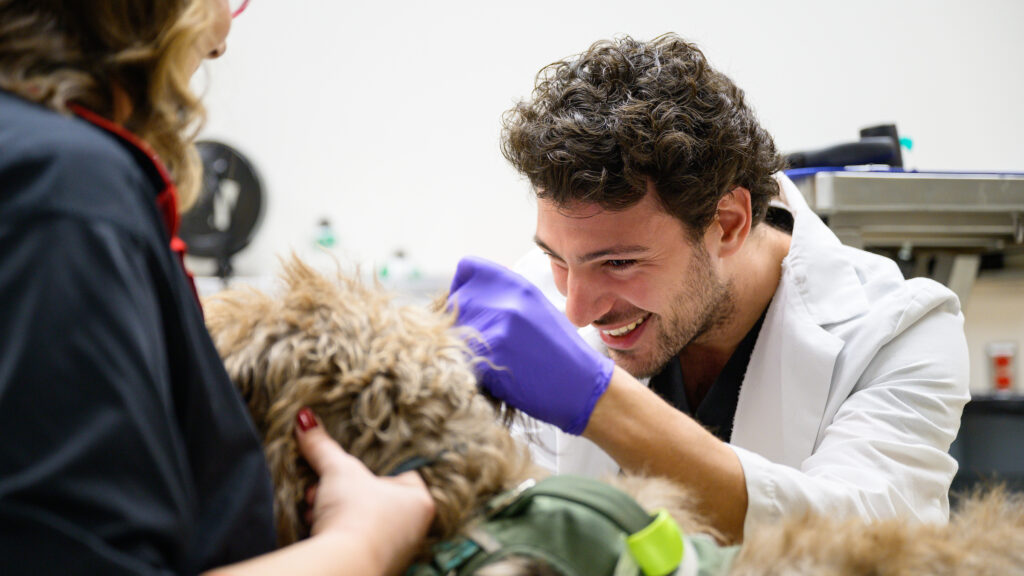
The following summer, he completed a five-week dermatology externship at Cornell University and found himself once again embracing the challenge of practicing medicine in a foreign language and environment. That positive experience inspired him to seek further training opportunities in the United States.
But first, he headed to a small animal clinic in a busy referral hospital near Paris to complete a one-year rotating internship after his graduation in 2019. From there, he worked for over two years at primary care clinics in Paris and Versailles, gaining experience in general practice on the advice of his dermatology mentors.
“Derm is a lot about client communication, long-term care and long-term follow-up,” says Pinto, adding that general practice provides a strong foundation in those skills.
During his time in Versailles, he earned a diplôme universitaire, a specialized professional degree, in immunological therapies and immunology from the Université Paris Cité. He attended class on the weekends with doctors training in human medicine.
“Dogs, cats and other mammals have the same basic immune system — the same disease mechanisms and the same molecules doing the same jobs,” Pinto says. “Many of the skin diseases we have in dogs share similar features with human skin diseases. I use what I learned in that course every day.”
The call to train in dermatology only grew stronger for Pinto during that time. He applied to NC State’s internship program at a colleague’s recommendation and was admitted in 2022.
Joining the Pack
Even though he’d worked as a full-time veterinarian before, Pinto had to find his footing while starting specialized practice in the U.S.
Apart from communicating medicine in English, he also had to learn the cultures around veterinary medicine and pet ownership in the United States. Compared with their French counterparts, American pet owners generally take a more active role in their animals’ care and enrichment, Pinto says.
“Coming from being a general practitioner in France to working in an American third-line referral clinic at one of the most famous vet schools in the world, that was a huge leap,” Pinto says. “It’s made me improve on many things.”
On a typical day, Pinto sees four to six patients with skin conditions caused by anything from allergies to cancer to autoimmune or infectious diseases. The majority of his patients are dogs, followed by cats and the occasional horse or goat. Many cases require collaboration with other services across the hospital, including internal medicine, oncology and radiology.
The diversity of patients and conditions he sees, along with the bonds he has formed with pet owners and fellow veterinarians, made the decision to stay at NC State for his residency easy. Dermatology professor Dr. Petra Bizikova, one of Pinto’s mentors, says the service is lucky to have him.
“Dr. Pinto is a highly regarded resident with a strong work ethic, passion for learning, and a positive impact on both his clinical and academic environments,” Bizikova says. “His growth as a clinician and a teacher, as well as his dedication to research, suggest he is on track to become a highly effective dermatologist and, possibly, a future clinician scientist and academician.”
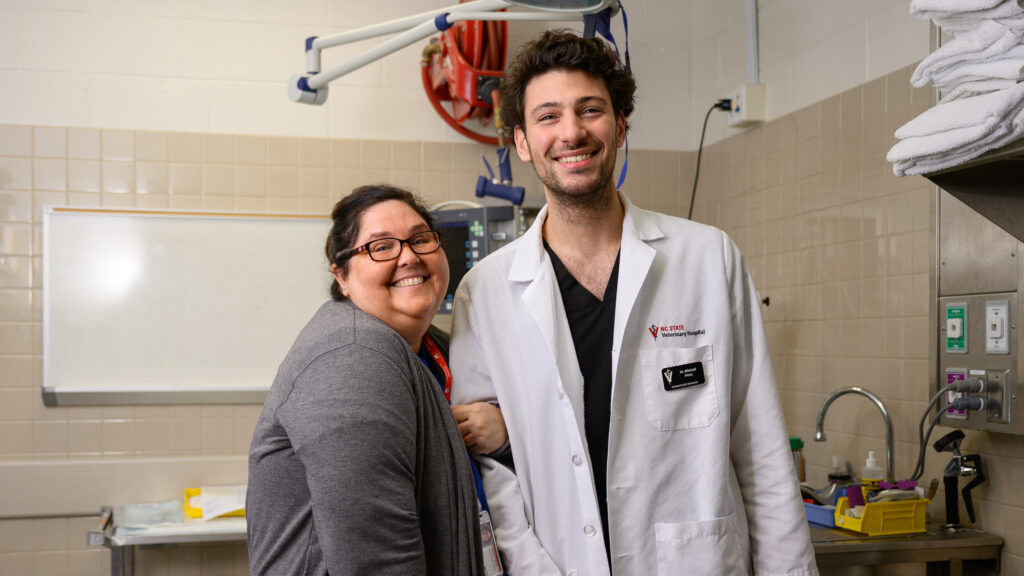
Pinto has also made community connections within the Veterinary Academic Leaders program, a training ground for future veterinary professors and researchers, and taken the initiative to mentor fourth-year veterinary students completing their clinical rotations.
He will soon launch a project researching skin infections in dogs with allergies and determining best approaches to assess infection severity. In the future, he looks forward to following his research interest in autoimmune diseases, particularly blistering diseases in the pemphigus group, with faculty guidance.
Immunology will be a focal point of Pinto’s future work, though he’s currently deciding between pursuing a Ph.D. or a fellowship immediately after his three-year residency. For now, he’s enjoying where he is and taking in every moment at the Veterinary Hospital.
“Everyone’s really welcoming, pleasant to work with and an excellent mentor,” he says. “I’m amazed at how smart they are. I feel like this is the place to be.”
This article is part of a series featuring house officers across the NC State College of Veterinary Medicine and Veterinary Hospital. Click here to find previous House Officer Highlight stories.
- Categories:
